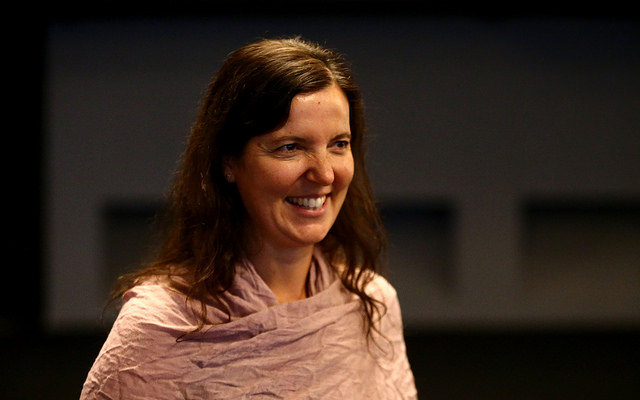July 31, 2018, 6:16 pm

Natasha Giradau and her team’s initial reaction, when they realized a few months ago that their next documentary was going to be about female mathematicians, was simply, ‘That sounds a little dry.’ But, as they soon discovered, their assumptions couldn’t have been further than the truth.
Giradau started out as a documentarian in Venezuela in the era before digital filmmaking and has made more than 2000 micro-documentaries in 30 countries over the last nine years. Her films focus on humanitarian topics, from literacy in Nepal to the Clinton Foundation. But she found making ‘Journeys of Women in Mathematics’ more heart-warming than she had ever anticipated.
Read more:
I truly didn’t expect the standing ovation, said Giradau, referring to the screening of her documentary, ‘Journeys of Women in Mathematics’, which had shown earlier in the day in at (WM)² and starred three female mathematicians in India, Cameroon, and Brazil. I think women expected to see credentials, and instead they saw themselves.
With the documentary’s screening, Giradau says that she feels its purpose has shifted. Although it was supposed to portray the three female mathematicians, she says that breaking the stereotypes had a tremendous impact on women who watched it at (WM)². The gathering is important, impactful work, but the documentary is also a way to communicate that, she said. The stories told, and their impact here interweave, and end up influencing one and another.
Showing female mathematicians as the high-achieving professionals that they are was fundamental for Giradau, but putting their accomplishments on screen alongside their personal lives was even more remarkable. Mathematicians are commonly stereotyped as highly competent, but not friendly or personable to the extent that Giradau says she has rarely seen outside of mathematics and science professions.
As such, it’s often both challenging and isolating for women in these fields to be both personable and be taken seriously as professionals. As the daughter of an engineer, Giradau had never been made to feel that a career in mathematics or science was something that she couldn’t have when she was a child. By putting women who she describes as so passionate, so accomplished and also so feminine, she hopes that the film will also help girls like her eleven-year-old daughter who is, by coincidence, enamored with mathematics.
It’s never crossed her mind that she wouldn’t be able to pursue it if she wanted to, Giradau said, adding that she hopes her film will reinforce this message for professionals, too. It’s a women’s issue because it’s a gender issue, but the benefit of bringing more women to the table enriches the possibilities for everyone.